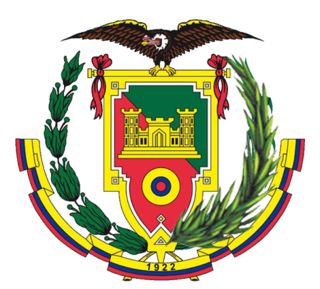
The Polytechnic University of Catalonia, currently referred to as BarcelonaTech, and commonly known as UPC, is the largest engineering university in Catalonia, Spain. It also offers programs in other disciplines such as mathematics and architecture.

The Polytechnic University of Valencia is a Spanish university located in Valencia, with a focus on science and technology. It was founded in 1968 as the Higher Polytechnic School of Valencia and became a university in 1971, but some of its schools are more than 100 years old.

The Central American Technological University(UNITEC) is a private coeducational institution with campuses in the three main cities of Honduras: Tegucigalpa, San Pedro Sula and La Ceiba.
The National Autonomous University of Nicaragua is the main state-funded public university of Nicaragua.
Top International Managers in Engineering (T.I.M.E.), formerly Top Industrial Managers for Europe, is a network of fifty-seven engineering schools, faculties and technical universities. The oldest European network of engineering schools in its field, the T.I.M.E. Association promotes graduate student exchanges and double degrees throughout Europe and the world to enable students to achieve a broader, high-level scientific engineering education with in-depth intercultural experience.

The National Polytechnic University, also known as EPN, is a public university in Quito, Ecuador. The campus, called "José Rubén Orellana", is located at the sector center-oriental of Quito. It occupies an area of 15.2 hectares and has a built area of around 62,000 metres2. Its student body numbers approximately 10,000 of which thirty percent are women. The main campus encompasses ten teaching and research faculties, in addition to four technical and specialized institutes. EPN was founded in 1869 with the aim of becoming the first technical and technological center in the country. Since its beginnings, EPN adopted the polytechnic university model, which stresses laboratory instruction in applied science and engineering. At the campus, there are some libraries with a content primarily oriented to engineering and scientific topics.
The Ecuadorian Constitution requires that all children attend school until they achieve a “basic level of education,” which is estimated at nine school years.

The Polytechnic University of San Luis Potosí was created on 27 June 2001 and was the first Polytechnic University of the Subsystem of Polytechnic Universities.

The Escola Politécnica of the University of São Paulo is an engineering school at the University of São Paulo (USP) in São Paulo, Brazil.

The National Experimental University of the Armed Forces is a Venezuelan public university associated with the Venezuelan armed forces. Founded in 1974 by the former president Rafael Caldera as the National Armed Forces Higher Polytechnical Institution, it was renamed by the Venezuelan president Hugo Chavez in 1999.
José Luis López de Silanes1, Spanish businessman, holds a degree in industrial engineering from Universidad Politécnica de Madrid and followed the Management Development Programme at the IESE business school.

The Real Colegio Complutense at Harvard University : The RCC at Harvard is an academic institution aimed at providing intellectual exchange between Harvard and the Spanish Academia. It is located at 26, Trowbridge Street, Cambridge (MA).
Fran Silvestre Arquitectos is a studio based in Valencia made up a multidisciplinary group of architects founded in 2005 by architect Fran Silvestre.

The Universidad Politécnica de Cartagena or UPCT, is a public university located in the Spanish city of Cartagena, in the Region of Murcia. The university mainly specializes in technology and business studies. It has formally existed since August 3, 1998.

Rafael Serrallet is a Spanish classical guitarist.

The April 19 University Movement is a Nicaraguan student movement created on April 25th, 2018 in Managua, Nicaragua. The student group opposes the government of Daniel Ortega who from 1979-1990 served as the country's first President following the Nicaraguan Revolution, was re-elected in 2006, and is the nation's current President. The April 19 University Movement organized and participated in the 2018–2020 Nicaraguan protests that began April 18th, 2018 in response to Social Security (INSS) reforms. The group has also served as spokesperson in national dialogue.

The Armed Forces University – ESPE, which can also be translated as Polytechnical School of the Army, formerly called "Escuela Politécnica del Ejército" ESPE is a higher education university in Sangolquí, Pichincha Province, Ecuador. Established on June 16, 1922, it originated from the Escuela de Oficiales Ingenieros, created by the Ecuadorian President José Luis Tamayo.
This page is based on this
Wikipedia article Text is available under the
CC BY-SA 4.0 license; additional terms may apply.
Images, videos and audio are available under their respective licenses.












